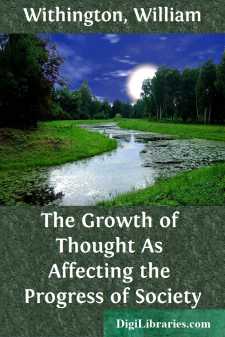Categories
- Antiques & Collectibles 13
- Architecture 36
- Art 48
- Bibles 22
- Biography & Autobiography 813
- Body, Mind & Spirit 142
- Business & Economics 28
- Children's Books 15
- Children's Fiction 12
- Computers 4
- Cooking 94
- Crafts & Hobbies 4
- Drama 346
- Education 46
- Family & Relationships 57
- Fiction 11828
- Games 19
- Gardening 17
- Health & Fitness 34
- History 1377
- House & Home 1
- Humor 147
- Juvenile Fiction 1873
- Juvenile Nonfiction 202
- Language Arts & Disciplines 88
- Law 16
- Literary Collections 686
- Literary Criticism 179
- Mathematics 13
- Medical 41
- Music 40
- Nature 179
- Non-Classifiable 1768
- Performing Arts 7
- Periodicals 1453
- Philosophy 64
- Photography 2
- Poetry 896
- Political Science 203
- Psychology 42
- Reference 154
- Religion 513
- Science 126
- Self-Help 84
- Social Science 81
- Sports & Recreation 34
- Study Aids 3
- Technology & Engineering 59
- Transportation 23
- Travel 463
- True Crime 29
Introduction to the Science of Sociology
Categories:
Description:
Excerpt
PREFACE
The materials upon which this book is based have been collected from a wide range of sources and represent the observation and reflection of men who have seen life from very different points of view. This was necessary in order to bring into the perspective of a single volume the whole wide range of social organization and human life which is the subject-matter of a science of society.
At the same time an effort has been made to bring this material within the limits of a very definite series of sociological conceptions which suggest, at any rate, where they do not clearly exhibit, the fundamental relations of the parts to one another and to the concepts and contents of the volume as a whole.
The Introduction to the Science of Sociology is not conceived as a mere collection of materials, however, but as a systematic treatise. On the other hand, the excerpts which make up the body of the book are not to be regarded as mere illustrations. In the context in which they appear, and with the headings which indicate their place in the volume, they should enable the student to formulate for himself the principles involved. An experience of some years, during which this book has been in preparation, has demonstrated the value to the teacher of a body of materials that are interesting in themselves and that appeal to the experience of the student. If students are invited to take an active part in the task of interpretation of the text, if they are encouraged to use the references in order to extend their knowledge of the subject-matter and to check and supplement classroom discussion by their personal observation, their whole attitude becomes active rather than passive. Students gain in this way a sense of dealing at first hand with a subject-matter that is alive and with a science that is in the making. Under these conditions sociology becomes a common enterprise in which all members of the class participate; to which, by their observation and investigation, they can and should make contributions.
The first thing that students in sociology need to learn is to observe and record their own observations; to read, and then to select and record the materials which are the fruits of their readings; to organize and use, in short, their own experience. The whole organization of this volume may be taken as an illustration of a method, at once tentative and experimental, for the collection, classification, and interpretation of materials, and should be used by students from the very outset in all their reading and study.
Social questions have been endlessly discussed, and it is important that they should be. What the student needs to learn, however, is how to get facts rather than formulate opinions. The most important facts that sociologists have to deal with are opinions (attitudes and sentiments), but until students learn to deal with opinions as the biologists deal with organisms, that is, to dissect them—reduce them to their component elements, describe them, and define the situation (environment) to which they are a response—we must not expect very great progress in sociological science....












